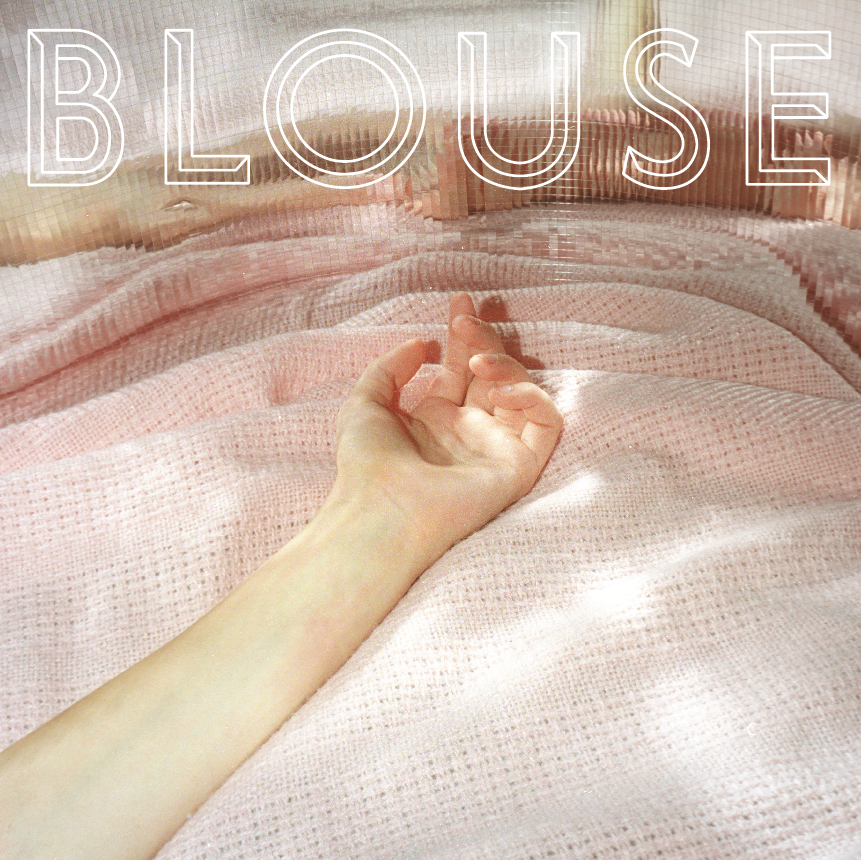I’m done. I can’t keep pretending, hoping, trying desperately to love these neo-retro, lo-fi experimental bands. Two years into this whole chillwave fad, which in and of itself is a vomit-worthy catch-all phrase for these fuzzed-out pet projects, I’ve hit a wall in my ability to care about them. Which is disappointing, especially when I turn on a record like Blouse, an album I know I would have usually fallen in love with. But with the passing of each whistling, downtempo synth and fading drum beat, I grow increasingly agitated with the monotony built upon limitless potential.
Blouse is a terrifically fine record, and in today’s market where new female-lead bands are all the rage (see: Tennis, Cults, Summer Camp, etc.), they’re bound to have great success touring the record as well. But the problem is, they sound exactly the same as every other Gorilla vs. Bear and Altered Zones touted group. Blouse sounds like what a polaroid picture looks like: purposefully antiquated.
But my apparent biases aside, Blouse has those moments that can capture a listener’s imagination and prove that they deserve differentiation from the aforementioned acts. The slow rolling surf guitar intro to “They Always Fly Away,” along with the infectious bass line that guides the rest of the track are a playful mix of pop ideas that blend perfectly. It has that same simplistic-yet-impressive style that make bands like The xx or Whitest Boy Alive so enjoyable. But, sadly, so much of that appeal wears off quickly, or is so few and far between that it makes the entire album sound entirely bland.
Those blissful pop moments, the emotionally intense and gorgeous tracks which Blouse appear so desperate to create, are often times mistaken for a garbled mess of incoherent noise. The beginning of “Videotapes” and “White” are so insultingly forced that it consumes the rest of the song in an introspective period of bewilderment. Not in awe, but rather in confusion. And this is where Blouse truly disappoints. The band’s inability to commit to one idea of what their persona and image is all about. For the most part, the album sounds similar in an advantageous sense, but there are those shorter, more record-defining moments, where Blouse sound lost as group. The cover image alone tries to invoke a sort of ’80’s style sexiness, with a lone hand half clenched on a bed of light pink satin sheets.
This review isn’t meant to be an indictment on indie music’s current trends, but rather a revealing conversation about my current stance on this genre of music. And I hope that remains clear, because Blouse is a good album, and the Portland trio display limitless potential at points, but I wish they wouldn’t have succumb to such bland attributes. If I’m ever trying to explain to somebody what 2011 sounded like, I’ll probably just play Blouse, and lead singer Charlie Hilton’s vocals will ring clearer than ever, “I was in the future yesterday.” The muffled electronic drums, the swoon-inducing vocals, the busy synths – everything about the album panders to strangely nostalgic indie landscape. Blouse feels more like a proof of concept than a finished product, but thanks to tracks like “They Always Fly Away” or “Ghost Dream,” Blouse are a promising, if yet to be fully realized, project.

